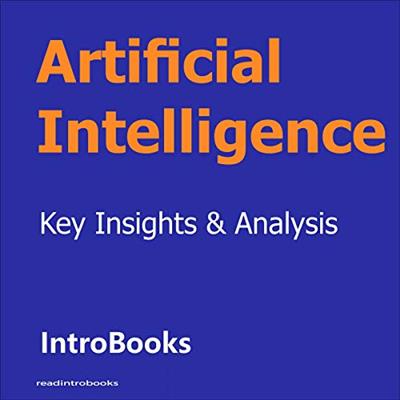
English | 2021 | ASIN: B091G49LKR | MP3 | M4B | 48 min | 66.6 MB
In 1956, when John McCarthy held the first academic session on the particular topic, the term artificial intelligence was introduced and made open to the audience as a technological innovation for an enterprise-level transformation. But the path to understanding whether machines can really think in a human way started long before that. Artificial Intelligence or AI can be defined as a machine, robot, or a product and service strategy to determine how people can think and act logically in a given situation. AI is a study of how human brain thinks, learns, decides, and works, when trying to resolve ensuing problems.
And eventually, the study of AI has created intelligent software systems. Artificial intelligence carries a goal in mind to improve processes related to human knowledge, such as learning, reasoning and above all, problem-solving.
It is a widely accepted and age-old proven truth that the very word viz., intelligence is intangible by nature. It comprises of learning, reasoning, perceiving, problem-solving and of course, assimilates the element of linguistic intelligence. Similarly, the functional realm of artificial intelligence revolves around reasoning, knowledge representation, learning, planning, realizing, processing of natural language and the freedom to move and manipulate objects. The general intelligence sector has long-term intentions.
»_by_Introbooks_Team.mp3.html
Links are Interchangeable - No Password - Single Extraction



